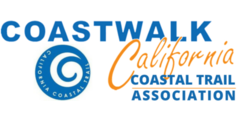Volunteer Blog
Stay up to date with the latest news from the Coastwalk officeWe need you!
Send us a short story (usually between 250 and 500 words) about your walk, a cool story from years past, new trail you’ve hiked (or excellent old trail you’d recommend).
Send your story to [email protected]
Contact Us
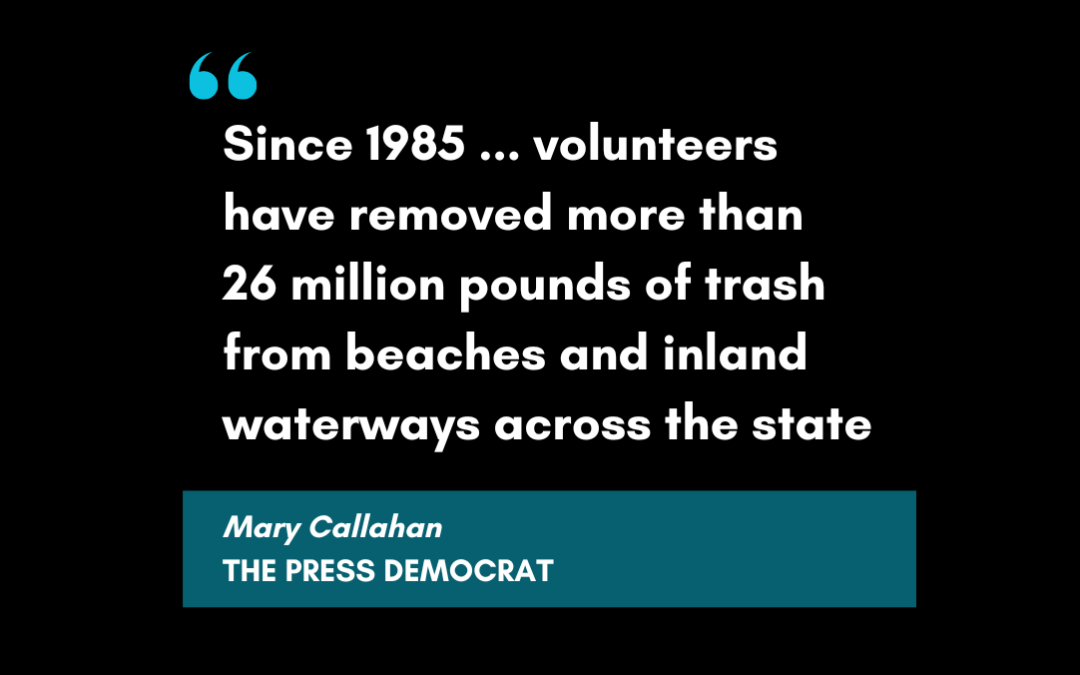
The Press Democrat
Coastwalk California received recognition from The Press Democrat for their outstanding efforts in organizing Coastal Cleanup Day. The local publication highlighted the organization’s dedication to preserving Sonoma County’s coastline, with a special shout-out to their commitment to engaging the community in environmental stewardship.
“Since 1985, more than 1.6 million volunteers have removed more than 26 million pounds of trash from beaches and inland waterways across the state, according to the California Coastal Commission, which oversees the operation statewide.
Together, volunteers have hauled away everything from dumped appliances and tires to many millions of bottles, cans, bags and cigarette butts.”
Coastal Cleanup Day, set for September 21, mobilizes volunteers across the region to remove trash and debris from local beaches and waterways. Coastwalk California’s role in coordinating this large-scale event ensures that every participant has the tools, guidance, and support needed to make a tangible difference. With growing awareness around environmental issues, The Press Democrat‘s acknowledgment emphasizes the critical work being done by Coastwalk California and other community partners to keep the coast clean and vibrant for future generations.
The Press Democrat article can be read here.
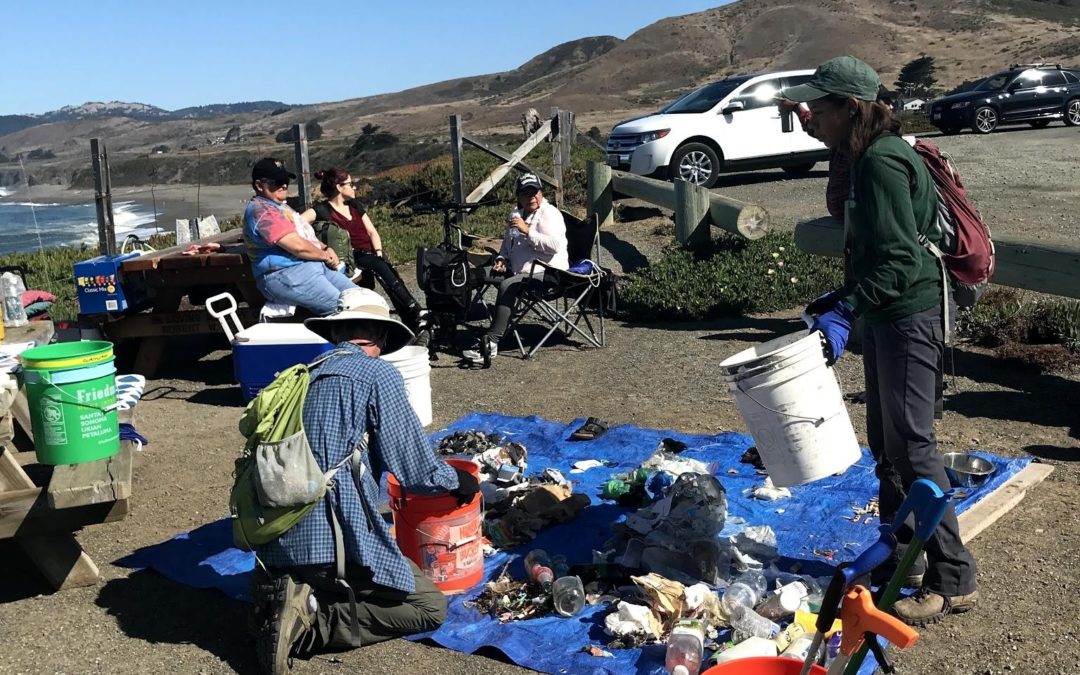
COVID-19’s Climate Impact and the Repercussions We Must Face
THE FRANKLIN POST
FRANKLIN HIGH SCHOOL • 5405 SE WOODWARD STREET • PORTLAND, OREGON
At the peak of the COVID-19 lockdown, the world rejoiced as the environment saw a glimpse of improvement. Dolphins swam in the rivers of Venice, air quality improved, water pollution decreased in many parts of the world, and birds and animals alike thrived in their newfound peace. Animals found a home in places previously inhabited by humans, and a world catered to people allowed space for nature and other species. “At the beginning, the world paused and the environment thrived,” Izabella Wayland-Vasquez, a Franklin high school alumni, says.
However, as the pandemic lasted far longer than many of us expected, we watched as something positive quickly shifted to a negative.
With the need for at-home accessibility, constant sanitation, an increase in use of single-use plastics, takeout, Amazon shopping and overall lack of structure and regulations for businesses, we find ourselves at a point that could possibly be detrimental for our earth. As people returned to some sense of normalcy, air and pollution levels bounced back to damaging levels, animals retreated to their safety nets, and water quality quickly reverted back to what it was before. The positive progress made during the lockdown had proven to be temporary. As the world opens back up, we are left with another set of issues that could be even worse for the environment.
Cea Higgins is an environmental activist and advocacy coordinator for Coastwalk California trail beach clean ups and is also their retired executive director. Coastwalk is a state-wide non-profit organization, and they advocate for a balance between experiencing the coast and having stewardship and respect for the nature there. “It’s hard not to be negative because [COVID-19] has not been a positive thing for the environment. At all,” she says.
Higgins has been doing coastal conservation for over 25 years, and she has been doing clean ups, “long before people were really aware of plastic pollution and its detrimental effects on the ocean.” She spends her days at the beach, leading expeditions, recruiting volunteers, working in the office, organizing events for students and adults, and designing campaigns to ensure that the beach is well taken care of. Many of her hours are unpaid.
When COVID-19 hit, beach clean ups and volunteer organizations were severely impacted. Since indoor spaces were off limits because of the pandemic, everyone flocked to the beach and nature preserves. With them, they brought their single use plastics, disposable masks, and other miscellaneous trash, leaving untouched natural spaces covered in debris and popular beaches far worse than before. “There’s lots and lots of trash, PPE, human waste, and then all the single use to-go dining stuff, and I’m finding it in super pristine environments that a lot of people didn’t visit,” Higgins says.
In a time when volunteers were needed most, there were the fewest. Large group gatherings were restricted, so fundraising and recruiting volunteers was near impossible. “It’s been extremely difficult to substitute funding that we would normally get from these types of events… how do we make that shift?” says Higgins.
On top of that, in a time when people were afraid that the virus would spread over surfaces, picking up trash was the last thing anyone wanted to do. Even people who weren’t affiliated with an organization and simply cleaned up the beaches as their gift to the ocean were no longer comfortable risking their health to pick up litter.
With a lack of resources and excess trash, we are faced with a huge issue on the beaches and in natural preserves. “I haven’t seen this much trash on the beach in over 30 years,” Higgins states.
Last year, the United States spent nearly 11 billion dollars on cleaning up trash and debris across the U.S, which is ten times more than spent on trash disposal. An estimated 207 PPE (Personal Protective Equipment) items were littered on US roadways and waterways alone in early fall 2020. There is an increasing demand for PPE, which contributes to a significant amount of waste. In a poll of 104 people, 79% of them said that they consume more plastic now since the beginning of the COVID-19 pandemic in early 2020.
An excess amount of single use plastics and waste is just one problem we now face because of the pandemic. According to satellite data, in April 2020 alone, 64 percent more land was cleared than the same month the previous year which was the biggest year of deforestation in more than a decade. In 2020, deforestation rates increased by 9.5% from the previous year.
Keeping these forests alive is essential in the fight against climate change. Deforestation affects everything, whether it be the air we all breathe, temperature, thousands upon millions of habitats, or the water in our rivers. Megan Whisnand, the AP Environmental Science and Climate Justice teacher at Franklin says, “Forests are just so important. They clean the air, they clean the water. And you can just experience that by walking into a forest, it just feels cooler and calmer.” Forests create a sanctuary for everyone, whether it be animals or humans, or over 391,000 species of plants that the woods are home to.
Due to decreased monitoring and deregulation of businesses during the lockdown, our already large deforestation problem has grown and will continue to skyrocket unless businesses and organizations alike are monitored. “There’s a balance between individual responsibility, but then also the responsibility of our government, or the responsibility of these big corporations,” Whisnand states.
Just as we began to see progression in the fight against climate change, the pandemic seems to have pushed us back years. However, as we return back to a sense of normalcy in a post-pandemic world, we hold the keys to our future. Finally, the world seems ready to embrace real change, and as knowledge about the climate crisis is increasingly more supported and encouraged, we make space for progress. Although bleak, there is a sense of consciousness that people now understand in regards to the planet. Higgins says, “I think where the hope lies, is in the awareness. And I think people understand that it is critical. I see more and more people who want to be part of the solution.”
https://fhspost.com/covid-19s-climate-impact-and-the-repercussions-we-must-face/
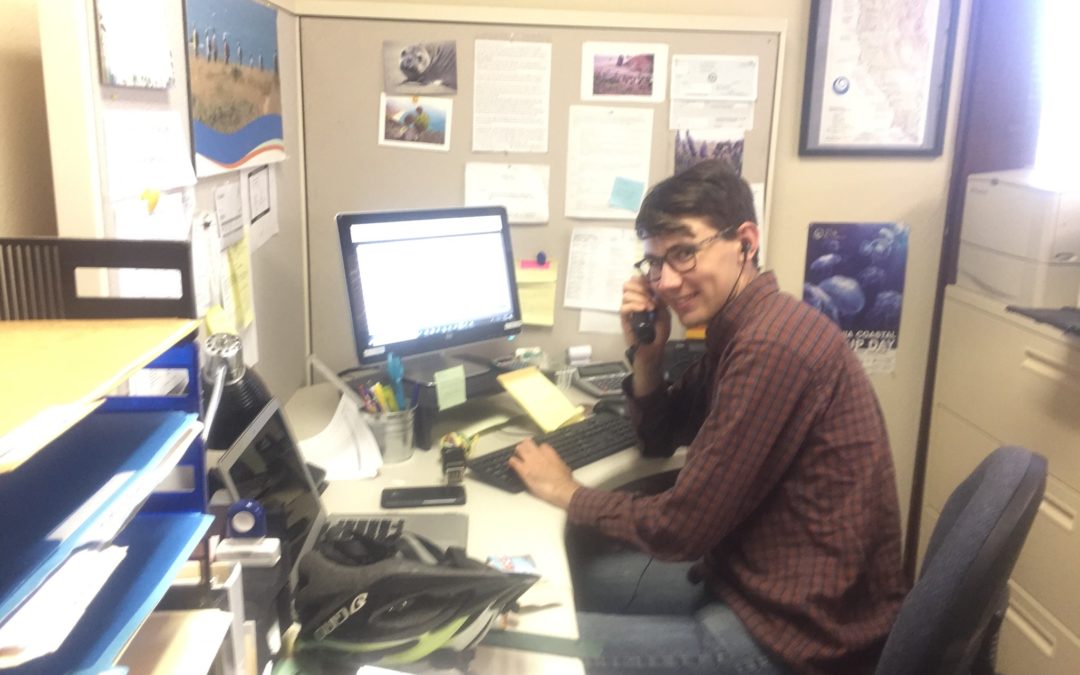
Say Hi To Elijah!
Elijah has been busy working with us on cataloging our internet assets, creating a standardized social media procedural and working with us on our WordPress site. He is also working on the upcoming GIS Hub, so keep your eyes peeled for when that comes out. When Elijah has not been working on these things, he has been helping us with leading walks, taking phone calls and answering emails. If you contacted the office within the last few days, there is a good chance that he was the person who helped you!
Elijah’s work at Coastwalk has helped us continue our mission to engage with the wider public about the importance of coastal access and the California Coastal Trail. We thank him for all of the wonderful work he has been doing with us and cannot wait to work with him more in the future!
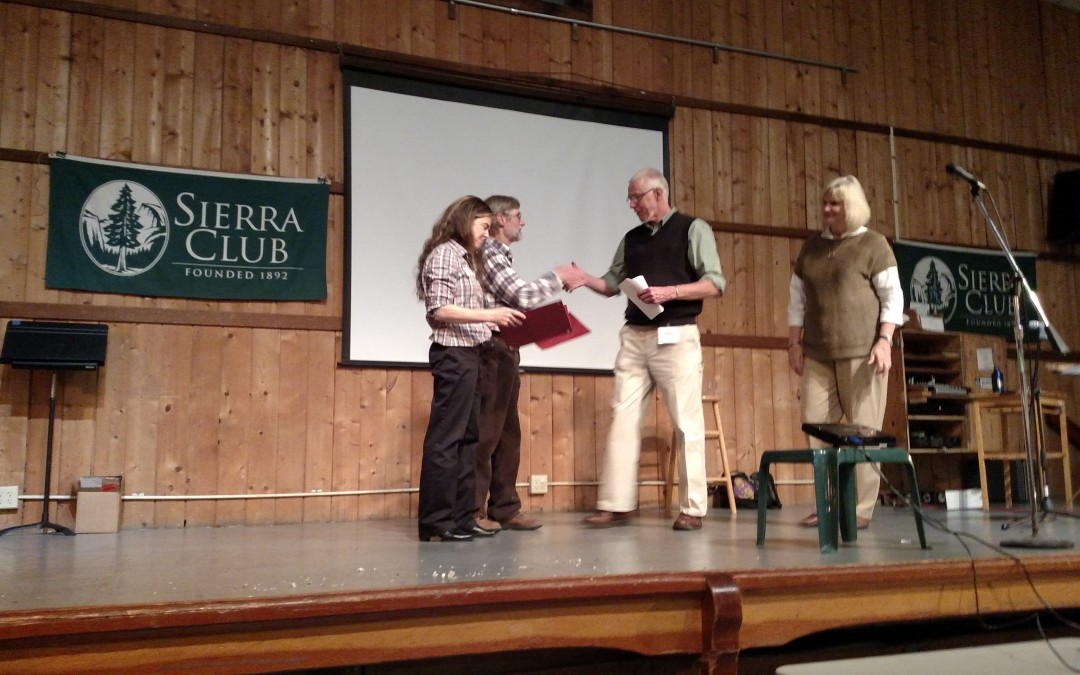
Coastwalk volunteers recognized by the Sonoma County Environmental Center
On Sunday, March 15th, 2015, the Sonoma County Environmental Center awarded Kimberly Burr and Larry Hanson “Volunteer of the year”. They have helped with Coastwalk for the last ten years, as Chuckwagon wrangler, Day hike leader, and Hostess. including Del Norte in 2013, Mendonoma, and the Classic Mendocino Walks. Their early commitment help me to put together some Great Walks. Now they will be helping us to build 2.2 miles of new trail this August in Usal as Crew Leaders and Hostess. They really got their award for their work with Forest Unlimited, River Watch and the Greenwood Creek habitat restoration project. Larry reads every timber harvest plan submitted to Cal Fire and has gotten some cancelled and some reworked. Kimberly is an environmental Lawyer, sits on a local water board and is very active with the State water Board. She just won a judgement in Oakland court protecting a local Geologist licence. Both are Great examples of the kind of local environmental leadership we see on Coastwalks.
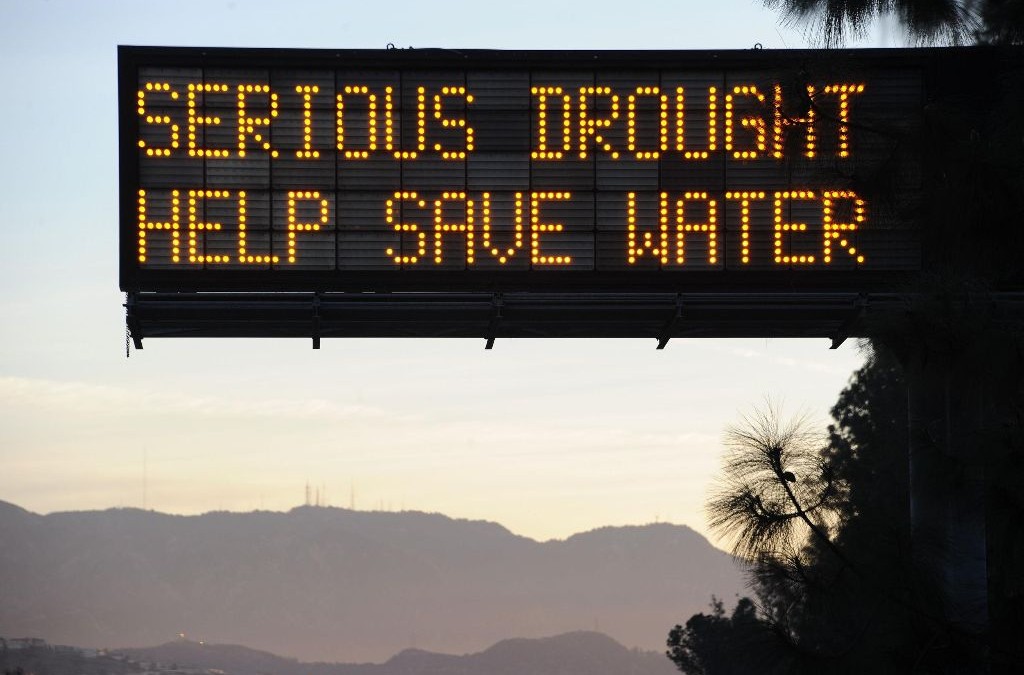
Droughts Affects Water at Parks
As we approach the dry spring and summer months, the scope and severity of California’s drought has become more apparent, but it is already clear that California is faced with extraordinarily dry conditions, with impacts to all sectors and every corner of the state. Some Regional and State Parks may not have running water this summer, and we’d like to address a few things to help you better prepare for your walk.
read more…
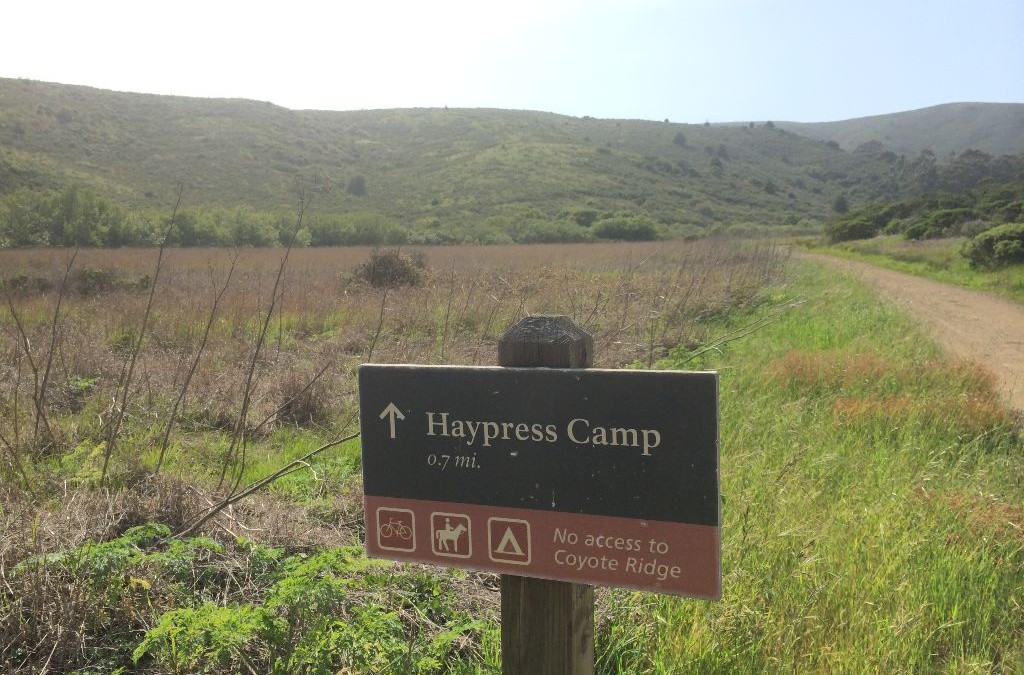
Custom Walk uses NPS sites in Marin
This May, Coastwalk volunteers will take four young hikers from Richmond, Virginia on a custom, 6-day/5-night Coastwalk from downtown San Francisco, along the Marin Headlands, up Mt.Tam and down to camp their final night at Steep Ravine. This new route, currently being prehiked by our volunteers, stops at Bicentennial and Haypress campgrounds, NPS sites little used by Coastwalk in recent years. read more…
